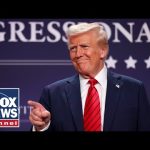Elon Musk, the high-profile CEO of Tesla and SpaceX, has found himself at the center of escalating tensions as threats and inflammatory rhetoric against him reach alarming levels. Recent incidents, including a pastor advocating for violence and a congressman using combative language, have drawn sharp criticism and legal scrutiny. Musk’s growing influence, particularly through his role in the Trump administration’s Department of Government Efficiency (DOGE), has made him a lightning rod for both praise and vitriol. These developments raise serious questions about the state of public discourse and the dangers posed by unchecked hostility toward prominent figures.
The most concerning episode involves Tennessee pastor Steve Caudle, who suggested violence could be justified to oppose Musk’s alleged encroachment on government operations. This rhetoric is not only irresponsible but also emblematic of a broader trend where political disagreements spiral into dangerous hyperbole. Similarly, Democratic Congressman Robert Garcia’s remarks urging Democrats to bring “actual weapons to this bar fight” against Musk have drawn condemnation from conservatives and prompted a letter from federal prosecutors demanding clarification. Such language, even if metaphorical, undermines the principles of civil debate and risks inciting real-world violence.
Musk’s critics argue that his role in DOGE, which aims to streamline federal operations and reduce wasteful spending, represents an overreach into government affairs. However, conservatives view his efforts as long-overdue reforms to a bloated bureaucracy. Musk’s push for accountability, including his controversial email asking federal employees to justify their work, highlights inefficiencies that taxpayers have long decried. While unions and bureaucrats bristle at these changes, many Americans see them as necessary steps toward restoring fiscal responsibility.
Adding to the intrigue is Musk’s recent suggestion of live-streaming an audit of Fort Knox’s gold reserves—a move that has sparked both excitement and skepticism. Conservatives have embraced this idea as a call for transparency in government operations, while critics dismiss it as a publicity stunt. Regardless, it underscores Musk’s knack for leveraging public curiosity to advance discussions about accountability in government—a hallmark of his unconventional approach to leadership.
The vitriol directed at Musk reflects deeper societal anxieties about economic instability and political polarization. While frustrations are understandable, resorting to threats or incendiary rhetoric is unacceptable. Conservatives argue that such hostility often stems from fear of losing control over entrenched systems that Musk seeks to reform. Rather than demonizing him, critics should engage in constructive dialogue about his policies and their implications for the nation.
In an era where public figures are increasingly targeted with hostility, the need for civility in political discourse has never been greater. Elon Musk’s polarizing presence may provoke strong reactions, but threats of violence cross a line that no democracy can afford to tolerate. As conservatives champion free speech and accountability, they also call for a return to respectful debate—an essential ingredient for navigating the challenges facing America today.




